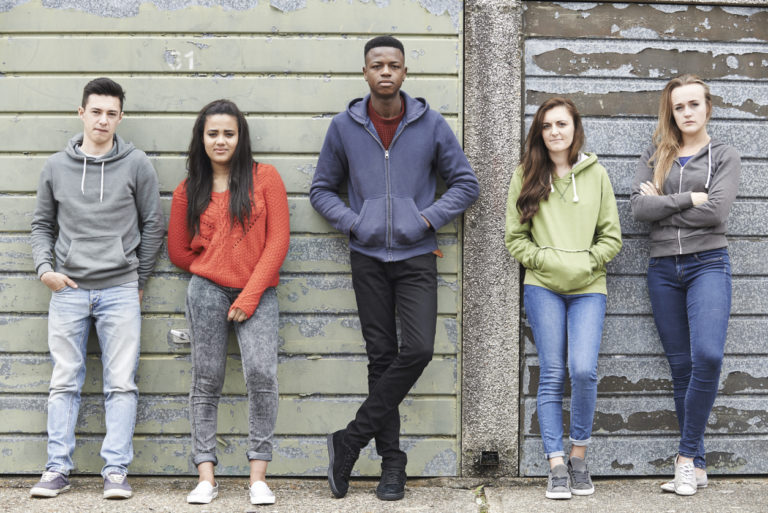How does the UK’s third largest city make sure it leaves no one behind when it comes to jobs, opportunities, health and wellbeing?
Despite the huge and shifting challenges all around us, that’s what Leeds is firmly focused on. It’s called inclusive economic growth. But what does that actually mean and what does it look like in reality?
Racing ahead
Business investment into Leeds continues to buck the national trend even amidst the current economic crisis. New data shows tech start-ups and scale-ups in Leeds had raised £288m by autumn 2022, an increase of 88 per cent on 2021’s figures. And the city’s renowned financial, legal and digital health sectors continue to grow. So how is all of that inclusive?
“It’s about removing barriers,” says Fiona Bolam, Head of Economic Policy at Leeds City Council. “For example, we have digital and tech businesses seeking talented, skilled people to fill their vacancies. Yet there are people living in our communities in Leeds don’t know these vacancies exist, or don’t think they are for them. Leeds is a great city to live and work in and we want to make sure that everyone can have the chance of great job.
Closing the gap
“On my first day in this job, I read that if you are born in one area of the city your life expectancy is 10 years fewer than in other areas. I found that really shocking and that was when I put my head in my hands and urgently wanted to help change things. The link between health and economy has always been clear to me and helping people to get good jobs with good progression is a route to improving health as well.
“I don’t want to see the great talent across the city going to waste. The chance to make that talent shine shouldn’t be dependent on your background or where you come from.”
It may seem a big gap to close but in Leeds there’s a lot of work going on behind the scenes which is gradually doing just that.
Blazing a national trail
Leeds is blazing a trail with its strong track record of working at grass roots to bring real change and influence across some of the city’s largest employers.
Known as ‘anchor organisations’, these employers form the Leeds Anchors Network. This comprises 13 of the city’s largest, civic organisations, with spending power collectively topping £2 billion and employing more than 58,000 people.
Through the Anchors Network, they share a commitment to improve the lives of their local communities and to make their workforces truly representative of them.
And it’s partly because of this established Network, the Health Foundation last year awarded £450,000 to Leeds to work n the Foundation’s Economies for Healthier Lives programme.
The programme is working with the city’s Anchor and community organisations to create new employment or training opportunities, and to measure the impact this has on local people’s health and employment and skills opportunities.
This builds on recent successes in the city, such as the scheme that has bridged the employment needs of St James’s University Hospital with job opportunities for local residents in nearby Lincoln Green.
As one of just four areas in the country to receive funding through the Economies for Healthier Lives programme, this project goes right to the heart of Leeds’ inclusive growth ethos: to make sure the poorest communities benefit from the city’s success and economic growth.
And that’s where Leeds is really striding ahead. The Leeds Anchors Network programme demonstrates the emergence of real change at organisational, system, cultural and city level. To embed a new approach to nurturing education, skills and employment opportunities for those who are more disadvantaged.
“We already know that health and wealth are closely linked. We’re hoping this programme will provide valuable new evidence to inform other local authorities and central government in levelling up their economies and population health,” Fiona explains.
Doing business
While addressing these grass roots’ issues might seem an adjunct to growing a globally competitive city, Leeds is demonstrating that they’re all part of the same mission. They are interdependent.
“We’ve worked hard with public, private and voluntary sector partners to embed our inclusive growth ethos, and many local businesses support the city’s vision and priorities.”
But standing still isn’t an option.
The scale and types of challenges businesses face are accelerating and unchartered, with labour markets and policies changing rapidly. Leeds has responded swiftly with its new Future Talent Plan.
Underpinned by pledges of support from city and regional partners, this plan is helping reset the city’s education and training offer to match anew what Leeds’ businesses need. At the same time, it still emphasises the importance of seeking and supporting those who may be furthest from the job market.
Leaving no one behind
“As part of my work, I spent an evening with technology businesses discussing jobs and opportunities. They told us that they needed people who had computer science degrees.
“The next night, I was in a disadvantaged area with young volunteers working on a community project. I asked if anyone wanted to get into the tech industry. It went quiet.
“Inclusive growth means bringing these sets of people and conversations together, to offer opportunities and help make sure that people have the right skills and chances to get some of the great jobs in Leeds. And that’s what we’re doing.”


